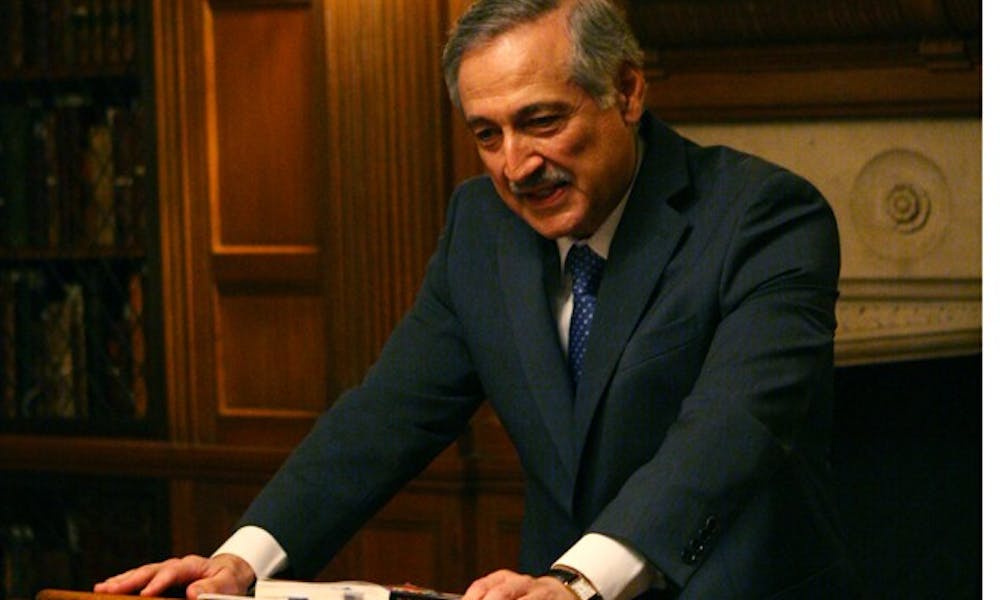The Biddle Rare Book Room was filled with scenes of resistance, escape and political turmoil Thursday evening as Chilean Ambassador to the United Nations Heraldo Muñoz described his part in the fight against Chilean dictator Augusto Pinochet’s regime.
Muñoz accepted the Washington Office on Latin America-Duke Book Award for Human Rights in Latin America for his political and personal memoir, “The Dictator’s Shadow: Life Under Augusto Pinochet.” He said one of the messages he hopes his readers take from his book is the idea of humanity and values, which he tried to emulate by refusing to take the “easy road.”
“I could have done something very different with my life,” Muñoz said. “[Instead,] I tried to do what I could to remove the dictatorship.”
After accepting the award, Muñoz spoke about life under Pinochet, a dictator who ruled Chile with an iron fist for 17 years, during which thousands disappeared, were killed or were taken prisoner. Muñoz also discussed his writing process and read selected passages from his book.
Muñoz said he was initially reluctant to write the memoir, which chronicles the Pinochet era and his own experiences fighting against the dictatorship.
“This was a page of my life I had turned already, and I didn’t want to revisit aspects of my life that were painful,” Muñoz said.
As a member of the resistance movement against Pinochet’s government, Muñoz’s safety, as well that of his family, was in constant danger. Muñoz briefly referred to his time as a political prisoner and being tortured by the government.
Muñoz also described how he escaped arrest simply because the troops sent to imprison him accidentally went to the wrong house.
“I thought I was sorely outgunned and outnumbered and I could not resist, it would be suicide,” Muñoz said. “And if I escaped, what would happen to my wife? What would happen to my family?”
Robin Kirk, executive director of the Duke Human Rights Center and one of the judges who selected Muñoz’s book as the recipient of the honor, explained the purpose of the award.
“The WOLA-Duke Book Award... in particular helps bring the message of human rights into communities and into our culture,” she said.
The award is sponsored by WOLA, the Archive for Human rights, the Duke Human Rights Center and the Duke Center for Latin American and Caribbean Studies. Muñoz’s book is the second recipient of the award, which was established in 2008. Francisco Goldman’s “The Art of Political Murder: Who Killed the Bishop?” received the award last year.
Ariel Dorfman, Walter Hines Page Research Professor of Literature and Latin American Studies and a Chilean native, presented Muñoz with the award. Muñoz and Dorfman have been close friends since their collaboration in the resistance movement.
Dorfman praised Muñoz as “somebody who’s a great militant for human rights and for democracy and against tyranny.”
In recent years, Muñoz has served as President of the U.N. Security Council and is currently chairman of the U.N. Commission of Inquiry into the 2007 assassination of former Pakistani Prime Minister Benazir Bhutto.
Get The Chronicle straight to your inbox
Signup for our weekly newsletter. Cancel at any time.

